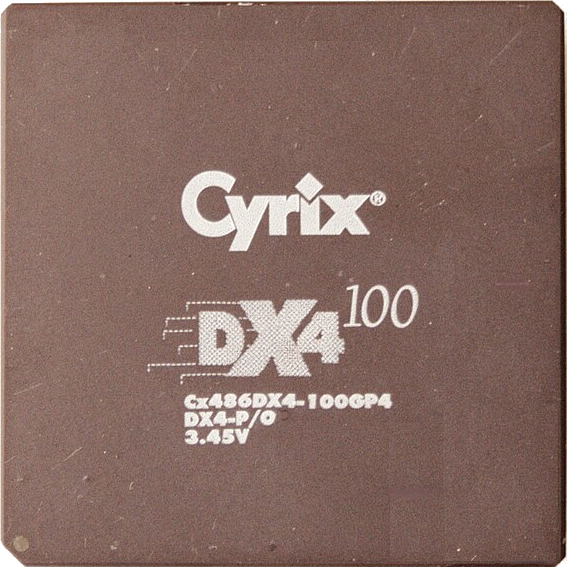I should take advantage of this tread
not that useful but cute: https://http.cat/ and https://http.dog/ give cute pictures to http error codes like 404: file not found or (the better one) 418: im a teapod
When i dont know what an errer code means i often put http.gat/{errorcode} and then i am pleased because of insight and cat- https://haveibeenpwned.com/ is very useful, it takes a few seconds for you to check if some accounts got found in public breaches
Ad blockers
For Safari on macOS, iOS I recommend 1Blocker.
Every time you see a Flock license plate reader, add it to the map.
They look like this:


It only costs a bit of your time 😊
As far as what I understand you are saying…
these are free solar panels and cameras?
I read through the website, but I don’t understand how this is helpful. Is it so that people can avoid driving past them, changing their route each time one is added?
Presumably so the people can dismantle the surveillance capabilities of a government turned fascist.
Through vandalism?
By any means necessary
You speak like that’s a bad thing.
I literally did not.
Oh goody then
If Organic Maps supported it as an overlay that would be game changing.
I was looking for an old show I saw back in 2000’s to see if any streaming platforms had it, low and behold someone had archived the VHS version of the show! The quality obviously wasn’t HD but it was good enough to still watch and reminisce.
MIT Open Courseware
Project Gutenberg: https://www.gutenberg.org/
Anna’s Archive
LibreVox (if audio books are more your thing):
Your local library likely uses hoopla, Libby, overdrive, or any of the myriad other apps Library content. Music, movies, audiobooks, e-books, and more.
I have not done a deep dive into the other services, but unfortunately overdrive is kind of shitty. Either way, your library might use it
Kanopy is a good one, great way to watch free movies. Lots of classics as well as some newer stuff.
My local library uses CloudLibrary, which doesn’t actually support ebook readers. It forces you to install an app and read from your phone. I literally have a card in a neighboring town, just to have Libby access on my Kobo e-reader.
Every time I go in to my local library, I make a point of mentioning that CloudLibrary doesn’t work on e-readers, in the hopes that they’ll consider switching to Libby instead.
I have largely avoided this problem by focusing on audiobooks where possible. Still, it makes me put off reading things I want to read in the hopes an audiobook comes out. It’s annoying for sure
Rss feeds.
Mullvad’s DoH service and Leta search proxy are free. You don’t need to have a VPN subscription to use them.
Can you break these two down for me please?
DNS over HTTPS (DoH), which is Domain Name Service over Secure HyperText Transfer Protocol. HTTP is the technology the Web runs on. The S in HTTPS is the secured version of HTTP, it’s encrypted using TLS (originally was SSL, Secure Sockets Layer), Transport Layer Security. DNS translates site names (e.g., www.google.com) into an IP (Internet Protocol) address (e.g., 8.8.8.8). DNS is an unencrypted protocol like HTTP. Adding in the Security component is somewhat tricky, but DoH is one of the ways, it just piggy backs on a tried and true secure transport technology that powers the web today.
The reason you would want to use DoH is to secure the domains you are accessing from (1) being intercepted and/or altered, e.g., someone poisoning the response and giving you a bad IP address for any number of reasons, and (2) snoops such as the WiFi provider you’re connected to or the Internet Service Provider (ISP) or cellular provider, or anyone else watching the unencrypted traffic.
All this is correct, but keep in mind that you still leak domain names until ECH (encrypted client hello) is in wide-spread use. It is of course still a good idea to use encrypted DNS, just don’t assume your ISP can’t see which websites you are accessing.
Cheers very much. I was somewhat familiar with the concept (didn’t knew the abbreviation for it tho). But your explanation just made everything slide in their place. Thanks again
If I remember correctly, Leta search proxy is the anonymized search proxy from Mullvad. Users connect and do internet searches, Leta will search various engines and cache the results, anonymized, for some time (days I think?) and any users who perform the same search will receive the cached results from the other users previous searches.
I could be wrong on some or all of that.
Sounds pretty much like Searchxng actually sounds a tad bit more sophisticated
Global communication.
Infinite knowledge.
Can we apply some of both of those to narrow down to a few recommendations? 😁
sex with your mom.
Correct, but offline
they’re not wrong












